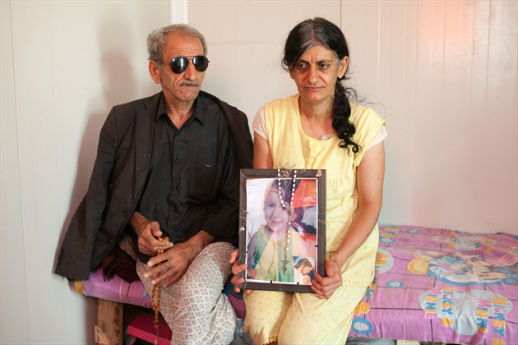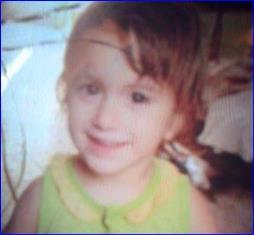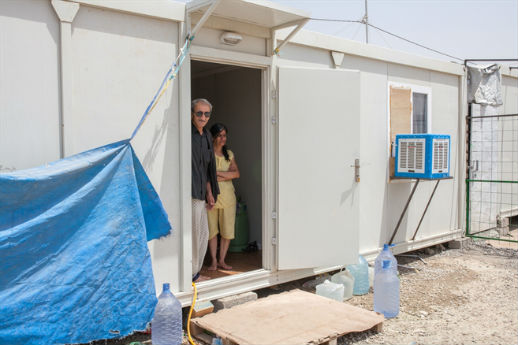
July 18 is Christina Khader Abada’s birthday. She’s 4.
Her family won’t have a party for her. A soldier of the Islamic State took Christina from the arms of her mother nearly a year ago, and nothing has been heard about the girl since.
“My biggest joy would be when my child Christina would return to us,” her mother, Ayda Abada, told Open Doors International, a charity that provides aid to Christians endangered by violence or oppression.

IS militants overran Iraq’s second city, Mosul, in July 2014, then swept into the town of Qaraqosh on Aug. 6. Already, hundreds of thousands of Christians and other minorities had fled the northern region. The Abada family, however, stayed behind in Qaraqosh because the father, Khader, is blind. Other Christians too old or handicapped to make a run for it also stayed, hoping for some measure of mercy from the invaders.
Their hopes didn’t last long.
On Aug. 22, militants rounded up the Christians, saying they would receive medical checkups.
The scene in the building, however, was chaotic, Ayda Abada told Open Doors. IS fighters stalked up and down the hallways. Several times, she said, they pointed at her. Christina was in her lap.
Someone gave an order: Take out any gold or other valuables. The Christians produced whatever they had brought — money, gold, clothes, ID cards. The IS militants took it.
Then they were ordered to get on a bus. The windows were smeared dark with dirt. Ayda Abada held Christina to her, very close.
“Then one of the Da’esh came and inspected the people on the bus,” she said, using the Arabic acronym for IS. “He walked up to us. He took my little girl from my arms and just walked away.”
Ayda ran after the man, begging him to return her daughter. Christina was taken into the building.
Several times, the man, whom the others called Fadel, walked out of the building. Christina’s mother pleaded for her daughter. Then an older, bearded man emerged from the building, carrying the girl, who was crying. The man was called “the prince.”
“The prince did not say a word, but only looked at me and made a despising gesture with his arms like he was saying ‘Get out of my eyes,’ ” Ayda said. At gunpoint, she was forced back onto the bus.
“The man holding Christina then walked away with her. That was the last time I saw her.”

Thirty kilometres down the road, at a checkpoint near the Khazir River, the bus stopped. Everyone was forced off. No one was allowed to use the bridge; everyone was directed to wade through the river. Though narrow, it nonetheless proved troublesome to the elderly and disabled Christians trying to cross it.
In the 11 months since, the family and the church have tried to learn about Christina’s fate, usually through slave-runners and others. Nothing.
The Abada family lives in a portable shelter in a refugee camp, as do tens of thousands of other Christians who fled IS for the comparatively safe city of Erbil, capital of Iraqi Kurdistan. There, among the agencies that support the families, is Open Doors. Ayda and Khader’s oldest son, 24, got married on Wednesday. He and his bride also live in the shelter, 10 metres by 3 metres, along with three other Abada children.
Cramped as they are, the seven would prefer they were eight.
